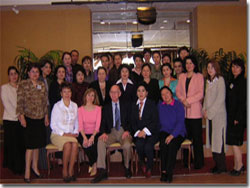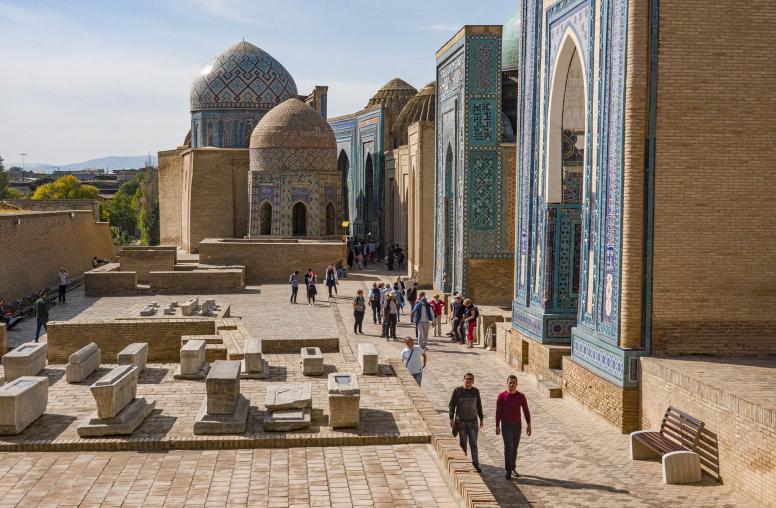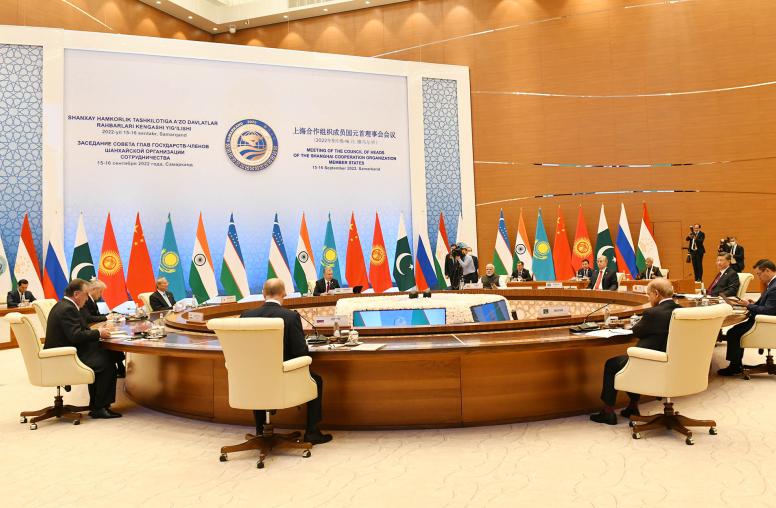Ted Feifer and Nina Sughrue of the Professional Training Program conducted a Workshop on Improving Government and Non-Governmental Organization Understanding in Central Asia and the Caucasus, in partnership with the Business Women's Association of Uzbekistan, in Tashkent, on April 12-14, 2005.
Ted Feifer and Nina Sughrue of the Professional Training Program conducted a Workshop on Improving Government and Non-Governmental Organization Understanding in Central Asia and the Caucasus, in partnership with the Business Women's Association of Uzbekistan, in Tashkent, on April 12-14, 2005.
The objective of this workshop was to enable government, NGO and private sector participants to better understand each other, their objectives, and their methods, by working together in the process of skills building in conflict management and resolution. The program was conducted in English with simultaneous Russian interpretation and involved presentations, a conflict self-assessment, exercises, small group problem solving on contemporary issues common in the region, the roles of third parties, and a complex simulation.
There were a total of 44 participants at the workshop from Uzbekistan (33), Tajikistan (3), Kyrgyzstan (2), Kazakhstan (3) and Azerbaijan (3). They came from governments, government-associated women's committees, businesswomen's associations, non-governmental associations, professional associations, the private sector, chambers of commerce, and universities, Deputy Prime Minister of Uzbekistan Inamova opened the workshop, which was also attended the first day by several deputy mayors from Uzbekistan.
Participants found the training useful and relevant. Many felt that their skills had been strengthened and looked forward to using them professionally. Participants also had the opportunity to discuss difficult contemporary issues and engage in practical problem solving in small groups with colleagues. Many felt that they had gained a better understanding of how to use their skills in situations involving government institutions, NGOs and the private sector.



